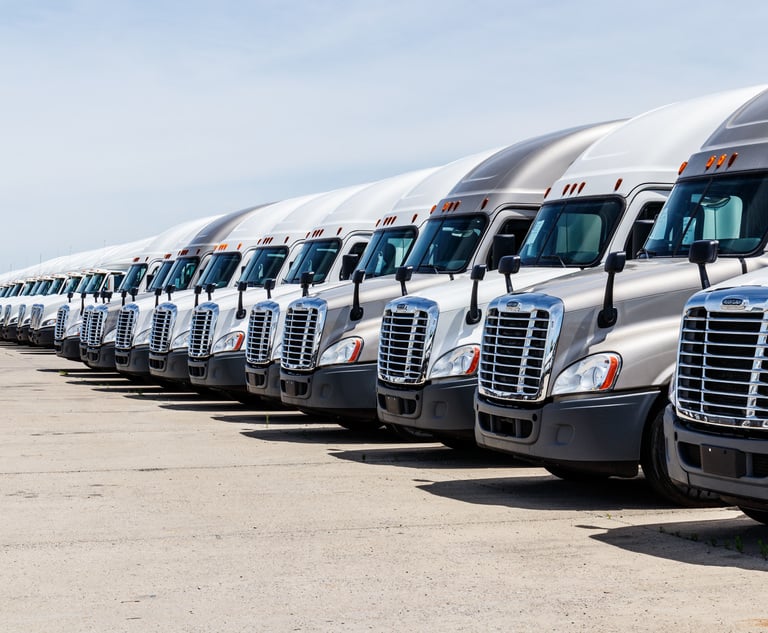 For insurers, when assessing the risk a company poses, especially in the transportation space, they need to understand their client's business and what type of fleet the company maintains. (Credit: Hirohito Takada/Shutterstock.com)
For insurers, when assessing the risk a company poses, especially in the transportation space, they need to understand their client's business and what type of fleet the company maintains. (Credit: Hirohito Takada/Shutterstock.com)
Large trucks, eighteen wheelers, tractor trailers. However you refer to them, they are, in many ways, the lifeblood of the U.S. economy. They deliver products, packages, toys, fuel, chemicals and more throughout the United States. Some of these transports are short haul (think less than 250 miles round trip) and some are long haul (think cross-country). Regardless of the length of the trip, we've all seen a large truck on the road. However, while there are many passenger vehicles that have moved to either fully electric (think Tesla) or a hybrid version of an internal combustion engine and electric (most, if not all major brands offer this option), the move to electrify large trucks has not moved as quickly. This is likely because of the numerous technology issues that precede such a move and the costs associated with such a change. However, from an insurance perspective, electrifying tractor trailers brings other issues that will need to be addressed and prepared for, such as the potential for product liability claims and coverage questions.
Want to continue reading?
Become a Free PropertyCasualty360 Digital Reader
Your access to unlimited PropertyCasualty360 content isn’t changing.
Once you are an ALM digital member, you’ll receive:
- All PropertyCasualty360.com news coverage, best practices, and in-depth analysis.
- Educational webcasts, resources from industry leaders, and informative newsletters.
- Other award-winning websites including BenefitsPRO.com and ThinkAdvisor.com.
Already have an account? Sign In
© 2024 ALM Global, LLC, All Rights Reserved. Request academic re-use from www.copyright.com. All other uses, submit a request to [email protected]. For more information visit Asset & Logo Licensing.








